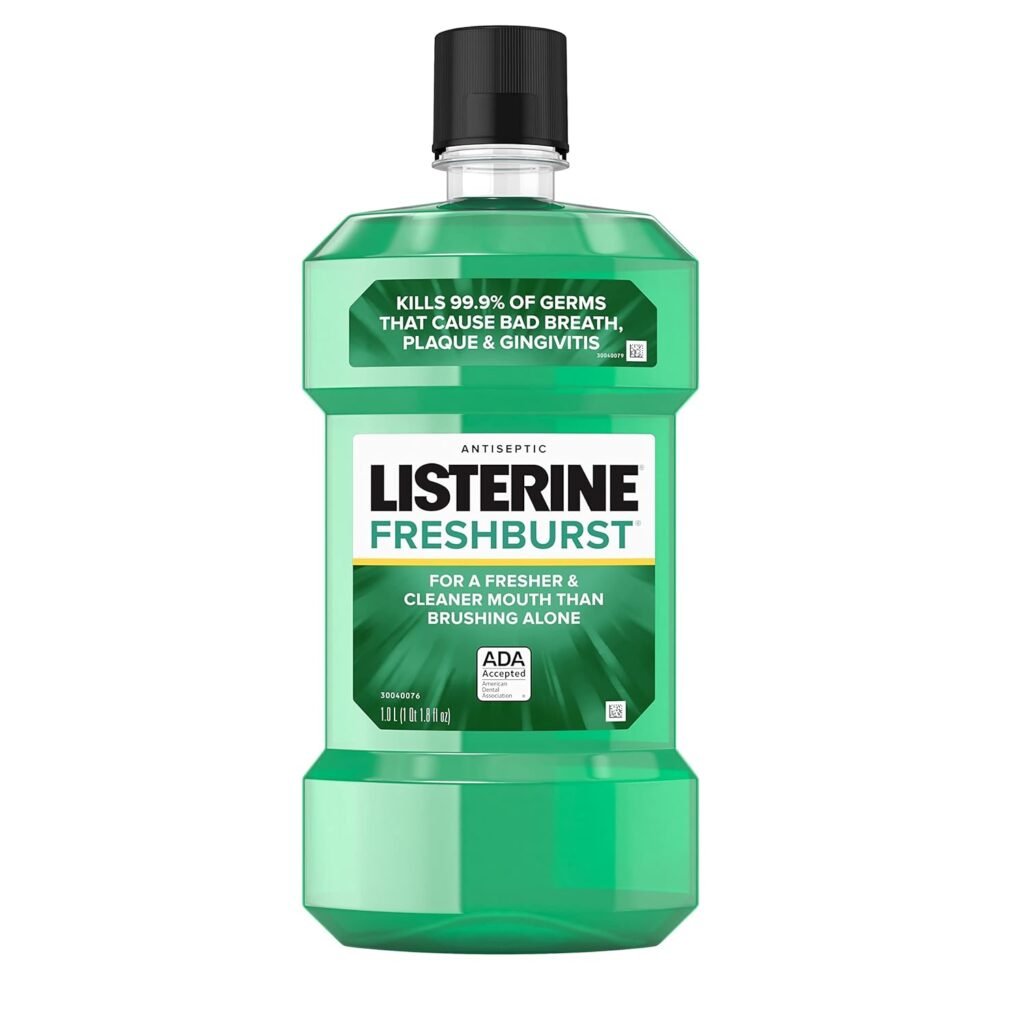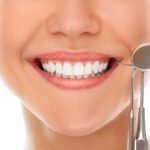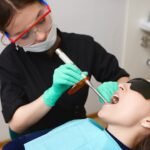Table of Contents
Different Types of Mouthwash
There are several types of mouthwash available on the market, each catering to different oral health needs. Antiseptic mouthwash, containing antibacterial agents such as chlorhexidine or cetylpyridinium chloride, is effective in killing bacteria and reducing plaque buildup. This type of mouthwash is often recommended for those with gum disease or who are at a higher risk of developing oral infections.

Fluoride mouthwash is another common type that helps strengthen tooth enamel and prevent cavities. By remineralizing the enamel, fluoride mouthwash can combat tooth decay and protect against acid erosion. It is especially beneficial for those living in areas with low fluoride levels in their water supply or for individuals prone to dental caries.
Ingredients to Look for in Mouthwash
When choosing a mouthwash, it is important to pay attention to the list of ingredients on the label. Look for mouthwashes that contain fluoride, a mineral that helps strengthen enamel and prevent tooth decay. Fluoride has been shown to be effective in reducing cavities and promoting overall oral health. Additionally, antimicrobial agents such as cetylpyridinium chloride or chlorhexidine can help reduce the amount of bacteria in the mouth, leading to fresher breath and a cleaner feel.
Avoid mouthwashes that contain alcohol if you have a history of dry mouth or sensitivity to alcohol. Alcohol-based mouthwashes can exacerbate dry mouth symptoms and cause discomfort for individuals with sensitive oral tissues. Instead, opt for alcohol-free formulas that are gentler on the mouth while still providing antibacterial benefits. Look for natural ingredients like tea tree oil, aloe vera, or xylitol, which have antibacterial properties without the harshness of alcohol.
Effectiveness of Alcohol-based Mouthwash
Alcohol-based mouthwash is widely recognized for its antimicrobial properties, effectively killing bacteria in the mouth. The alcohol content in these mouthwashes aids in reducing the bacterial load, which can help prevent conditions such as gingivitis and plaque buildup. Studies have shown that alcohol-based mouthwashes can be particularly beneficial for individuals with a high risk of oral infections or those undergoing certain dental procedures.

While alcohol-based mouthwashes can be effective in combating oral bacteria, it is important to note that they may not be suitable for everyone. Some individuals may experience irritation or dryness in the mouth due to the alcohol content. Additionally, research has indicated that prolonged use of alcohol-based mouthwashes may disrupt the natural balance of oral flora, potentially leading to other oral health issues. It is advisable to consult with a dental professional to determine if alcohol-based mouthwash is the right choice for your oral hygiene routine.
Benefits of Fluoride in Mouthwash
Fluoride is a crucial ingredient in mouthwash known for its benefits in promoting dental health. It is a naturally occurring mineral that helps strengthen tooth enamel, making it more resistant to decay caused by acids produced by bacteria in the mouth. Incorporating fluoride mouthwash into your oral hygiene routine can aid in preventing cavities and maintaining overall oral health.
Research has shown that fluoride in mouthwash can be particularly beneficial for individuals at high risk of tooth decay, such as children, seniors, and those with a history of dental issues. By using fluoride mouthwash as directed, you can help protect your teeth and gums, reducing the need for costly dental treatments in the future. It is important to note that fluoride in optimal concentrations is safe and effective in preventing tooth decay without any adverse effects when used correctly.
Importance of Antiseptic Mouthwash
Antiseptic mouthwash plays a crucial role in maintaining oral health by effectively reducing the number of bacteria in the mouth. By targeting harmful bacteria, antiseptic mouthwash helps to prevent various oral issues such as cavities, gum disease, and bad breath. The active ingredients in antiseptic mouthwash, such as chlorhexidine and cetylpyridinium chloride, have been proven to be effective in fighting oral bacteria and promoting overall oral hygiene.

Regular use of antiseptic mouthwash can contribute to a healthier mouth and reduce the risk of developing dental problems. Antiseptic mouthwashes are particularly beneficial for individuals with compromised immune systems or those who are at a higher risk of oral infections. By incorporating antiseptic mouthwash into your daily oral hygiene routine, you can ensure that your mouth remains clean and free of harmful bacteria, leading to improved oral health outcomes in the long run.
Considerations for Sensitive Teeth
For individuals with sensitive teeth, choosing the right mouthwash is crucial to maintaining oral health without triggering discomfort. Opting for a mouthwash specifically formulated for sensitive teeth can help alleviate the issues often associated with sensitivity, such as pain or discomfort when consuming hot or cold foods and beverages. Look for products that are alcohol-free and contain ingredients like potassium nitrate or stannous fluoride, which are known for their desensitizing properties. These ingredients work by forming a protective barrier over the teeth to help block pain signals from reaching the nerves, providing relief for sensitive teeth.
In addition to selecting a mouthwash designed for sensitive teeth, it is essential to consider the overall oral care routine when managing sensitivity. Using a soft-bristled toothbrush and gentle brushing technique, along with avoiding acidic foods and beverages, can help minimize enamel erosion and prevent further sensitivity. Regular dental check-ups are also recommended to identify any underlying issues that may be contributing to tooth sensitivity and to receive personalized advice on managing this common dental concern.
Mouthwash for Bad Breath
When dealing with bad breath, or halitosis, it’s essential to address the root cause rather than just mask the odor temporarily. Mouthwash formulated specifically for bad breath often contains antimicrobial agents to target the bacteria responsible for producing foul odors in the mouth. These antimicrobial ingredients work to reduce the levels of bacteria in the mouth, helping to combat bad breath at its source. Additionally, some mouthwashes for bad breath may also contain ingredients like zinc compounds or essential oils that can neutralize odors and leave a fresher breath sensation.

Using a mouthwash for bad breath as part of your oral hygiene routine can be a valuable tool in maintaining fresh breath throughout the day. It’s important to follow the instructions on the product packaging for the recommended duration of rinsing to maximize effectiveness. For individuals with chronic bad breath issues, consulting with a dental professional to identify the underlying cause is crucial for developing a comprehensive treatment plan tailored to their specific needs.
Mouthwash for Gum Health
Maintaining healthy gums is essential for overall oral health. Gum disease can lead to various complications, including tooth loss and systemic health issues. Using a mouthwash specifically designed for gum health can help prevent gum disease by targeting bacteria and plaque along the gum line. These mouthwashes often contain ingredients like essential oils, fluoride, and antibacterial agents, which work together to reduce inflammation and protect the gums.
When choosing a mouthwash for gum health, look for one that is alcohol-free to avoid irritation and dryness. Alcohol-based mouthwashes can sometimes exacerbate gum sensitivity and may not be suitable for individuals with gum disease. Opt for a mouthwash with anti-inflammatory properties, such as those containing aloe vera or chamomile, to soothe the gums and promote healing. Incorporating a gum-specific mouthwash into your oral hygiene routine, along with regular brushing and flossing, can help maintain healthy gums and prevent gum disease.
Natural vs. Chemical Mouthwash
When considering between natural and chemical mouthwash options, it is essential to assess the specific needs and preferences of each individual. Natural mouthwashes are typically made from plant-based ingredients, such as essential oils like tea tree oil or peppermint, and are free from artificial colors and flavors. Proponents of natural mouthwashes suggest that they may offer a gentler alternative for individuals with sensitive gums or oral tissues. However, it is important to note that natural mouthwashes may not always contain fluoride, a mineral that is crucial for strengthening tooth enamel and preventing tooth decay.
| Aspect | Natural Mouthwash | Chemical Mouthwash |
|---|---|---|
| Ingredients | Typically contain natural extracts, essential oils, and plant-based ingredients such as peppermint, tea tree oil, eucalyptus, and aloe vera. | Composed of synthetic compounds such as chlorhexidine, cetylpyridinium chloride, fluoride, and alcohol. |
| Benefits | Generally considered safer for long-term use, may provide soothing properties, and often free from artificial colors and flavors. | Often formulated for specific dental concerns such as plaque and gingivitis prevention, tartar control, and enamel strengthening. May also contain fluoride for cavity protection. |
| Antibacterial | Contains natural antibacterial properties derived from essential oils and plant extracts. | Typically contains synthetic antibacterial agents like chlorhexidine or cetylpyridinium chloride. |
| Alcohol-free | Many natural mouthwashes are alcohol-free, making them less harsh on the mouth and suitable for those with sensitive gums. | Some chemical mouthwashes contain alcohol as a primary ingredient, which can cause dry mouth and irritation for some users. |
| Taste | Often has a milder taste compared to chemical mouthwashes, with flavors derived from natural ingredients. | Chemical mouthwashes may have a stronger taste due to the synthetic compounds used in their formulation. |
| Availability | Widely available in health food stores, natural product retailers, and online. | Found in most drugstores, supermarkets, and pharmacies, and often recommended by dental professionals. |
| Price | Can be more expensive compared to chemical mouthwashes due to the use of higher-quality natural ingredients. | Generally more affordable, with a wide range of options available at different price points. |
| Sustainability | Often produced using environmentally friendly practices and may come in recyclable packaging. | Packaging and production methods may vary in terms of sustainability, depending on the brand and manufacturer. |
On the other hand, chemical mouthwashes often contain active ingredients such as chlorhexidine, cetylpyridinium chloride, or alcohol, which are known for their antimicrobial properties that help reduce plaque and fight bacteria that cause bad breath. Many chemical mouthwashes also contain fluoride, which is recommended by dentists for its protective effects on teeth. Despite their efficacy, some individuals may experience a burning sensation or dryness in their mouth when using alcohol-based mouthwashes. It is advisable to consult with a dentist to determine the most suitable option based on individual oral health needs and preferences.
Mouthwash for Whitening Teeth
When it comes to achieving a brighter smile, many individuals turn to mouthwash specifically designed for whitening teeth. These formulations often contain hydrogen peroxide or other whitening agents that help to remove surface stains and discoloration. While mouthwash for whitening teeth can be a convenient addition to your oral care routine, it’s important to note that these products may not provide the same level of whitening as professional treatments administered by a dentist.
It’s essential to manage expectations when using mouthwash for whitening teeth, as results may vary depending on the severity of staining and individual oral health factors. Additionally, it’s crucial to follow the instructions provided on the product packaging to ensure safe and effective use. For individuals seeking significant whitening results, consulting with a dental professional for personalized treatment options may be a more suitable approach.
Prescription vs. Over-the-Counter Mouthwash
Prescription mouthwashes are typically recommended for individuals with specific oral health conditions that require a more targeted and potent treatment approach. These specialized formulations may contain higher concentrations of active ingredients, such as chlorhexidine or fluoride, which are not typically found in over-the-counter options. Patients with severe gum disease, recurring cavities, or other complex oral health issues may benefit from the tailored approach that prescription mouthwashes offer.
On the other hand, over-the-counter mouthwashes are generally more widely available and cater to the general population for everyday oral hygiene maintenance. These products often focus on breath freshening, plaque control, and gum health without the need for a prescription. Over-the-counter options can be a convenient and cost-effective choice for individuals looking to enhance their daily oral care routine without the need for a specialized prescription formulation.
How to Properly Use Mouthwash
Rinsing with mouthwash is an essential step in a complete oral hygiene routine. To properly use mouthwash, start by pouring the recommended amount into a cup. Take a small sip and swish it around your mouth for 30 seconds to 1 minute, making sure to cover all areas including the front, back, and sides of your mouth. Avoid swallowing the mouthwash during this process. After swirling the liquid around, spit it out into the sink. Refrain from rinsing your mouth with water immediately after using mouthwash to allow the active ingredients to fully work on your teeth and gums.
It’s important to note that mouthwash should not replace brushing and flossing, but rather complement these daily practices. For optimal results, use mouthwash at a different time than brushing your teeth, such as after lunch or in the evening before bed. Additionally, be cautious not to exceed the recommended usage as overuse of mouthwash may lead to oral health issues. By incorporating mouthwash correctly into your oral care regimen, you can help maintain fresh breath, reduce plaque buildup, and support overall gum health.
| Step | Instructions |
|---|---|
| 1 | Pour the recommended amount of mouthwash into the cap or a measuring cup. |
| 2 | Swish the mouthwash around in your mouth for 30 to 60 seconds. |
| 3 | Gargle the mouthwash in the back of your throat if directed on the product label. |
| 4 | Spit out the mouthwash into the sink. Do not swallow it. |
| 5 | Avoid eating or drinking for at least 30 minutes after using mouthwash. |
| 6 | Rinse the cap or measuring cup thoroughly after use. |
| 7 | Store the mouthwash in a cool, dry place away from direct sunlight. |
| 8 | Use mouthwash as directed by your dentist or the product label for best results. |
Potential Side Effects of Mouthwash
When it comes to using mouthwash, there are potential side effects that individuals should be aware of. One common side effect is oral irritation, which may manifest as a burning sensation or soreness in the mouth. This can be attributed to certain ingredients in the mouthwash that may be harsh for some individuals, particularly those with sensitive oral tissues. Additionally, some people may experience dry mouth as a side effect of using mouthwash, which can contribute to discomfort and an increased risk of dental issues such as cavities.
Another potential side effect of using mouthwash is staining of the teeth, especially with certain types of mouthwash that contain ingredients like chlorhexidine or cetylpyridinium chloride. These substances can sometimes lead to the development of unsightly stains on the teeth over time. Furthermore, some individuals may be allergic to certain components of mouthwash, resulting in allergic reactions such as swelling, redness, or itching in the oral cavity. It is important to carefully read the ingredients list of mouthwash products and discontinue use if any adverse reactions occur.
The Role of Mouthwash in Overall Oral Health
Mouthwash plays a significant role in maintaining overall oral health by reaching areas in the mouth that may be missed by brushing and flossing alone. It can help reduce plaque buildup, prevent gum disease, and freshen breath, contributing to a cleaner and healthier mouth. Incorporating mouthwash into your oral hygiene routine can provide an extra layer of protection against bacteria and germs, promoting optimal dental health.
Different types of mouthwash cater to specific oral health needs, whether it’s addressing bad breath, promoting gum health, or whitening teeth. By choosing the right mouthwash tailored to your individual concerns, you can enhance the effectiveness of your oral care routine and achieve a more thorough clean. Regular use of mouthwash, in conjunction with proper brushing and flossing techniques, can contribute to a well-rounded approach to maintaining a healthy smile for years to come.
Choosing the Right Mouthwash for Your Needs
When choosing the right mouthwash for your needs, it’s essential to consider what specific oral health concerns you want to address. Different types of mouthwashes cater to various needs, such as fluoride mouthwashes for strengthening enamel, antiseptic mouthwashes for fighting bacteria, or alcohol-based mouthwashes for controlling plaque. Assessing your requirements can guide you towards selecting the most suitable mouthwash for your dental care routine.
Moreover, factor in any sensitivities or conditions you may have, like sensitive teeth or gum issues, when deciding on a mouthwash. For individuals with sensitivities, opting for alcohol-free or natural mouthwashes can be a gentler option that still provides effective cleaning and freshness. Understanding your own oral health needs and concerns is pivotal in making an informed decision about which type of mouthwash will best serve you in maintaining optimal oral hygiene.
Can mouthwash replace brushing and flossing?
No, mouthwash is not a substitute for brushing and flossing. It should be used in addition to regular oral hygiene practices.
Is it safe to use mouthwash every day?
It is generally safe to use mouthwash daily, but it is important to follow the instructions on the product label and not exceed the recommended usage.
Can children use mouthwash?
Children under a certain age (usually around 6 years old) should not use mouthwash unless specifically recommended by a dentist. Always check with a pediatric dentist before introducing mouthwash to children.
Are there any natural alternatives to traditional mouthwash?
Yes, there are natural mouthwashes available that do not contain alcohol or artificial ingredients. These may be a good option for those looking for a more natural oral care solution.
How long should I swish mouthwash in my mouth?
Most mouthwash products recommend swishing for 30 seconds to 1 minute. Be sure to follow the specific instructions on the product label for best results.
Can mouthwash help with dry mouth?
Some mouthwash products are designed to help alleviate dry mouth symptoms by moisturizing the oral tissues. Look for mouthwashes specifically formulated for dry mouth if this is a concern for you.




